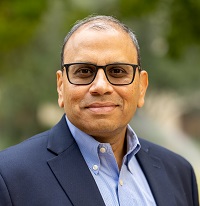Sustainability of energy and resource efficiency – Summary


In the fifth and final episode of the Sustainability podcast series, we are enjoying a continuing Industrial Machinery conversation with Rahul Garg, VP of Industrial Machinery at Siemens Digital Industries Software and Eryn Devola, Head of Sustainability at Siemens. In the previous episode, Eryn discussed optimizing for sustainability to ensure that peak machine performance is sustainable.
The sustainability journey

In this episode we discuss the overall challenge in the scope of the sustainability journey, which is not to have a few people doing it perfectly but requires everyone to do it imperfectly – simply start it and get it going. It’s not about hiring four people as sustainability experts, but it’s infusing sustainability and environmental protection considerations into every role in your organization.
For example, it’s essential to have experts on metals or polymers to look at them and understand their impacts. It’s necessary to have designers who understand how to balance water usage while also understanding production. You take that core technical or business-focused skill set to minimize energy usage and apply sustainability principles and considerations. So, it’s an essential element of your decision-making that impacts the environment, whether it’s CO2, water usage, or toxic substance and microplastics. It takes everyone doing their part to move that sustainability needle. And more attention is being given to governments and companies that are moving in that direction, with momentum not seen a few years ago.
Future of Sustainability
Sustainability is playing an ongoing role in the future of manufacturing. The goal of sustainability is zero waste: zero downtime, zero harm and zero impact on the planet using low cost clean, renewable energy use. This goal drives companies towards decarbonization, energy efficiency, resource efficiency, and circularity.
These are significant competitive advantages for companies to incorporate into their business to make it their value proposition while having a profitable view inside their operations and into a more sustainable business. So, eliminating or addressing these issues is not only for the lofty good but also for a successful future. It provides a holistic view to investigate new business models and new markets.
The next generation of students and new employees will be looking to work with companies that focus on environmental impacts and sustainability, as it’s an essential element they have grown up with. They see the effects it can have on their future. In the future, there will be those that will look at sustainability as an obligation and those who will look at it as an opportunity. When seeing it as an opportunity, you see it to be faster, more agile, and more creative in approaching complex and multifaceted problems.
Long term business goals
Ultimately, it will be more successful in the long term by adapting to particular business models via rethinking of how to do things. Digitalization is the key enabler, providing the ability to think bigger, broader, and a little off the wall, taking less intuitive ideas and pulling them forward. This is where technology can leverage the sustainability opportunity and help comply with the application, building towards a green future.
At Siemens, we’re working with universities to develop a circular economy-focused certificate program with sustainability as a skill set or topic. The future will see it as a part of every curriculum moving forward, moving into an MBA program, taking a sustainable development class in your mechanical engineering program.
Sustainability is being integrated more broadly in the future, rather than having a few expert programs where every company has one expert who could talk about sustainability. It needs to become the core of being successful rather than merely a bolt-on addition. It requires a systems-level approach and systems-level thinking, and that system is no longer inside your two gates but extends to the whole value chain of the product and the entire ecosystem of operations.
Quality must be a part of everything, so you must build a quality culture into every process to have good quality going out to your customer. Quality is essential in specifications, requirements documents, and execution of quality elements. It is the same way with sustainability.
Sustainability must be integrated into the heart of an organization – the culture and driving it through to every one of your organizational processes to be ultimately successful.
Siemens Digital Industries Software helps organizations of all sizes digitally transform using software, hardware and services from the Siemens Xcelerator business platform. Siemens’ software and the comprehensive digital twin enable companies to optimize their design, engineering and manufacturing processes to turn today’s ideas into the sustainable products of the future. From chips to entire systems, from product to process, across all industries. Siemens Digital Industries Software – Accelerating transformation.
Related Links
Sustainability and a Holistic Viewpoint for Greater Efficiency (ep. 3)
Sustainability and How a Digital Twin Impacts Energy Resource Usage (ep 4)


